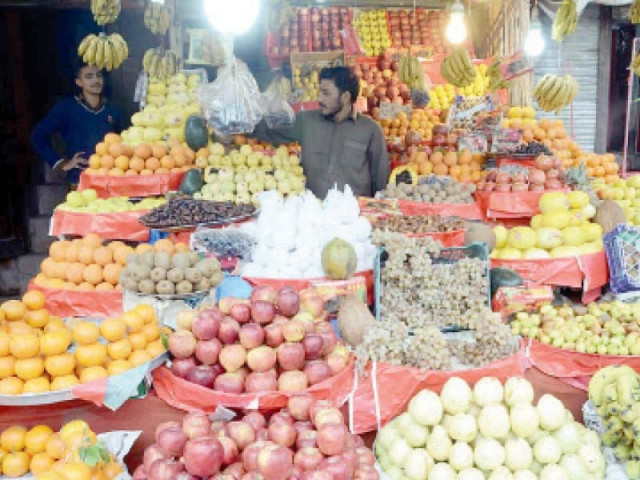NPMC for keeping food prices affordable
Stresses need for preventing locust attack on major, minor crops

Provincial govts said they were regularly monitoring prices and taking strict action against hoarding and profiteering. PHOTO: file
The committee also asked the Competition Commission of Pakistan (CCP) to check anti-competitive practices and take prudent administrative measures to stop such practices. It stressed the need for chalking out a comprehensive plan in collaboration with provinces to prevent the risk of locust attack on major and minor crops.
The observations were made during a meeting of the NPMC held at the Finance Division on Wednesday, under the chairmanship of finance secretary, to discuss price trends of essential food items.
The meeting was informed that the Consumer Price Index (CPI) inflation shrank 0.8% on a month-on-month basis in April 2020 as compared to March 2020. However, year-on-year, the inflation was recorded at 8.5% in April 2020 over April 2019 and July-April CPI inflation reached 11.2% compared to 6.5% in the same period of previous year.
Prices of goods in the international market were on the wane, which would augur well for prices in the domestic market shortly. The government was taking measures to control the general price level of daily-use items during Ramazan, the meeting was told. It was noted that the Sensitive Price Indicator (SPI), which monitored price movements of 51 essential items every week, recorded an increase of 0.01% in the week ended May 14, 2020.
During the week, 11 items recorded a decline in their prices while prices of 26 items remained stable. It was the fifth consecutive increase in the SPI in April and May 2020.
Provincial governments told the meeting that they were regularly monitoring prices of commodities and taking strict action against hoarding and undue profiteering.
The Sindh government said 49,833 outlets were checked in Ramazan, out of which 8,902 shopkeepers were fined Rs15.72 million.
The Punjab government told the meeting that 460,337 inspections had been carried out and 51,924 shopkeepers were found overcharging and were fined Rs103.75 million.
The committee also discussed price movements of essential goods in provinces and the Islamabad Capital Territory (ICT) and noted variations in price levels.
It discussed the outbreak of novel coronavirus and its impact on the demand and supply of essential items. The spread of Covid-19 compelled governments to close borders, however, the meeting was informed that there was no impact of such closure on prices of essential food items in the country as their trade on such borders was negligible.
The meeting chairman emphasised that all relevant authorities along with provincial governments should, in close coordination with each other, monitor the provision of essential food items at affordable prices.
Published in The Express Tribune, May 21st, 2020.
Like Business on Facebook, follow @TribuneBiz on Twitter to stay informed and join in the conversation.



















COMMENTS
Comments are moderated and generally will be posted if they are on-topic and not abusive.
For more information, please see our Comments FAQ